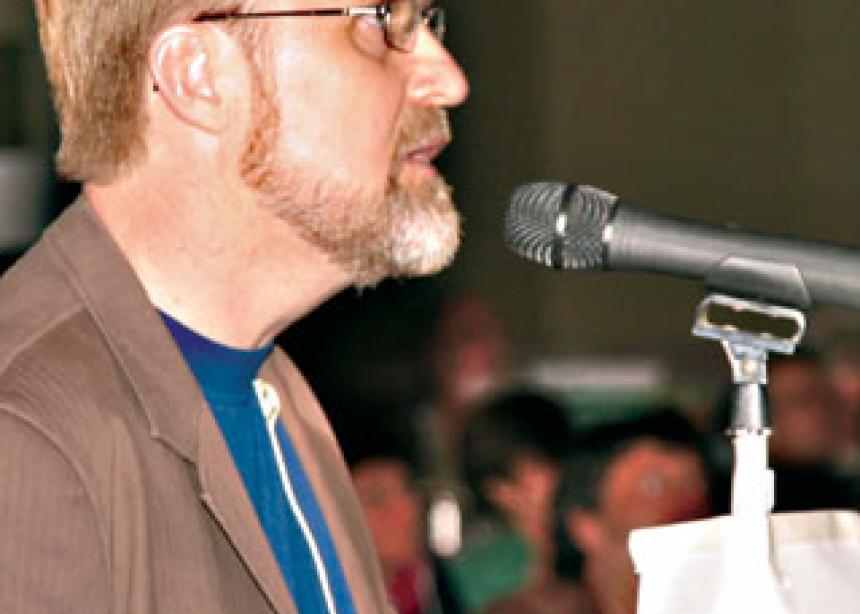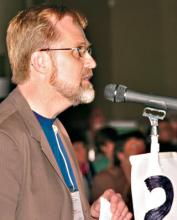Moderator Aldred Neufeld summed up Mennonite Church Eastern Canada’s 23rd annual delegate sessions last month by saying, “Even the wrong decisions can get us to the right place through God’s Spirit.” And wrong decisions—or questions—came up a number of times over the day-and-a-half of meetings.
A major issue was a proposed policy on property divestment from the executive council, which seeks to clear up the process of a decade-long attempt to sell properties not deemed to be central to MC Eastern Canada’s core purposes any more. This had come up in 2009 and was now brought back to significant delegate response.
Speakers were most concerned with the Toronto Warden Woods and Hamilton Welcome Inn community centres, both of which are run by community boards and, due to church closures, are no longer attached to MC Eastern Canada congregations.
If MC Eastern Canada was to try to get market value for the properties, neither institution could stay where it is.
Ruth Martin spoke to the Welcome Inn issue, noting that it was the centre itself that raised the money to purchase and keep up the building, so, in effect, it would be buying back a property that it had already paid for.
Tim Reimer asked whether the policy was asking the wrong question and whether a property ownership policy—guiding purchase and property ownership based on MC Eastern Canada’s core values—would not be better.
The policy was sent back to the executive council without being voted on.
Another area of discussion centred on a staff decision to “take a sabbath” from two popular youth programs: an itinerant Vacation Bible School troupe and the winter youth retreat. At a meeting focused on “forming leaders,” speakers wondered why such formative programs were cut.
A motion was eventually passed asking that “priority be given to the youth- and young-adult-focused ministry” by the Congregational Ministries Council.
One speaker wondered why children’s ministry was not included in this, and the movers agreed that this should also be considered.
Much of the discussion focussed on the need to minister to youths before they left for jobs or school, to connect them with their faith roots.
Silver Lake Mennonite Camp and Conrad Grebel University College have picked up the retreat attended by over 150 youths.
Also presented by the executive council was the potential of joining Mennonite Central Committee (MCC) Ontario and other Mennonite and Brethren institutions, including MC Eastern Canada and Mennonite Savings and Credit Union, in building an “Anabaptist centre” in downtown Kitchener.
MCC Ontario director Rick Cober Bauman said that such a shared space would lead to financial savings and foster inter-Mennonite connections.
The Administrative and Financial Services Council reported a small surplus at the end of 2009, but budgeted for more than a $60,000 deficit for 2010.
Missions Council noted that, along with eight emerging congregations, are nine church plants and 10 leaders of potential plants interested in relating to MC Eastern Canada. In one of the many table discussions, Herb Sawatzky of Avon Mennonite in Stratford noted that the area church needs to keep purpose, vision and the budget together.



Add new comment
Canadian Mennonite invites comments and encourages constructive discussion about our content. Actual full names (first and last) are required. Comments are moderated and may be edited. They will not appear online until approved and will be posted during business hours. Some comments may be reproduced in print.